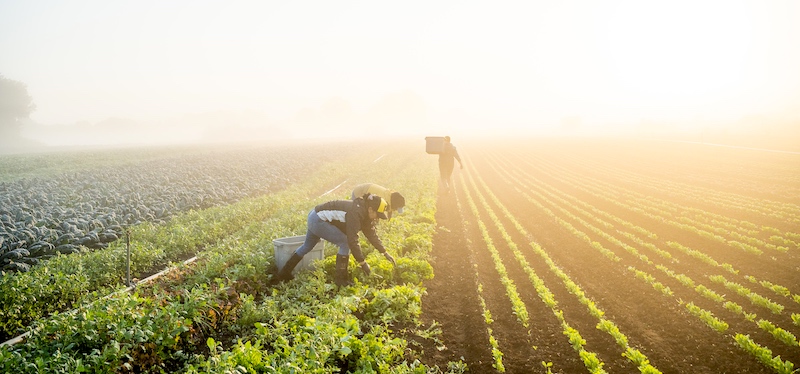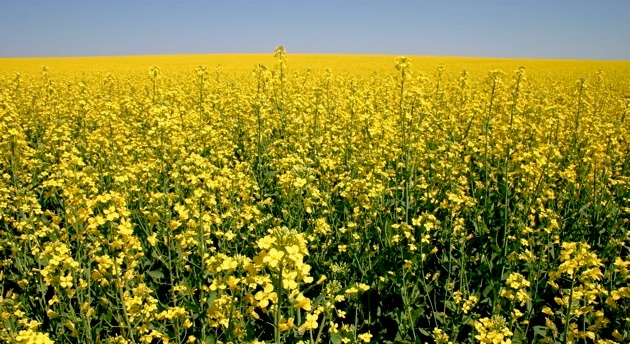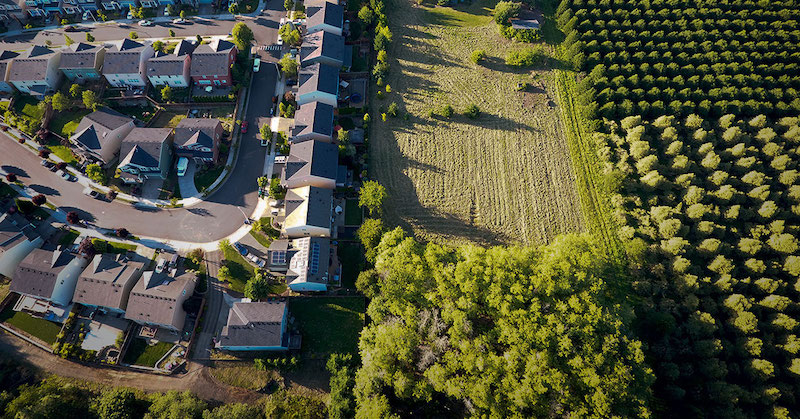
Legislative Report: 2024 Session Short but Critical for Oregon Farmers and Ranchers
The Oregon Legislature convened for its 82nd session this week. They'll have 35 days to complete their work—by law they cannot extend the session beyond that in even-numbered years (160 days in odd-numbered years)—with several bills requiring action that will affect our food system. Some of those are:
Oregon Agricultural Heritage Fund (HB 4060). This bill is requesting $10.8M for the Oregon Agricultural Heritage Program (OAHP) for the next biennium. OAHP has four components: technical assistance, succession planning, conservation management plans, and easements. This program is crucial not only for the preservation of Oregon's farmland, but the incorporation of environmental stewardship into working lands management.
Two of those components are particularly critical:
- Conservation management plans help farmers and ranchers develop plans for the long term viability of their farm ecosystems along with a plan to pay for improvements with matched federal funds.
- Conservation easement is a vital tool to protect farmland for agricultural use in perpetuity and lower the price of farmland for the next generation of producers.
If passed, this bill will broaden the tools available to lower land prices for people wanting to start farming or grow their existing farms; preserve farmland for production; and keep farms close to city centers. Advocates say we must take steps to preserve our high value soils and farmland permanently or we risk losing land accessible to the community food system in the future.
 Willamette Valley Specialty Seed Protected District (HB 4059). This bill directs the Oregon Department of Agriculture (ODA) to study issues around the Willamette Valley Specialty Seed Protected District, and whether to allow expanded growing of canola within the district. The ODA is directed to report back with recommendations in September of 2025.
Willamette Valley Specialty Seed Protected District (HB 4059). This bill directs the Oregon Department of Agriculture (ODA) to study issues around the Willamette Valley Specialty Seed Protected District, and whether to allow expanded growing of canola within the district. The ODA is directed to report back with recommendations in September of 2025.
The Willamette Valley is one of the most important regions in the world for large-scale vegetable seed production. Prior to 2015, growing canola was prohibited in the Valley due to its ability to cross-pollinate with crops in the brassica family like broccoli, kale, cabbage and others, risking the livelihoods of vegetable farmers and seed producers. In 2015 a law was passed allowing a very limited amount of canola to be grown with strict rules requiring distancing from brassica growers.
In order to protect farmers and growers of vegetable seeds in the brassica family from fear of contamination or rejection of contaminated seed by national and international markets, strong protections and compliance tools must be developed. Maintaining the Willamette Valley Protected District and limiting canola production is crucial to preserving the state's specialty seed growing industry.
 Housing, Land Use and UGB Expansion (SB 1537). This bill is aimed at adding much-needed affordable housing through infrastructure investment, developing climate-smart practices and instituting accountability systems. However, a dangerous loophole was added that allows for the governor to unilaterally decide to expand the current Urban Growth Boundary (UGB), sidestepping current laws and processes that limit urban sprawl, allowing it to expand into valuable agricultural land.
Housing, Land Use and UGB Expansion (SB 1537). This bill is aimed at adding much-needed affordable housing through infrastructure investment, developing climate-smart practices and instituting accountability systems. However, a dangerous loophole was added that allows for the governor to unilaterally decide to expand the current Urban Growth Boundary (UGB), sidestepping current laws and processes that limit urban sprawl, allowing it to expand into valuable agricultural land.
Though there are many crucial components that address the existing housing crisis, advocates are stressing the need to prioritize affordable housing within the existing UGBs first and foremost. Oregon’s land use laws and the concept of Urban Growth Boundaries (UGBs) has protected valuable farmland, they argue, saying that once farmland is lost, we can't get it back. Farmland with close proximity to urban markets supports a robust local food system, benefitting urban residents who gain access to locally grown products and farmers who have ready access to a large customer base.
 Summer Electronic Benefit Transfer (Summer EBT). Part of Oregon Department of Human Services (ODHS) budget, this program would help nearly 300,000 Oregon children by providing additional money for families during the summer break. While this is not a bill before the legislature, legislative approval of the portion of the ODHS budget for administering half the cost of this program is required in order to unlock the federal dollars that will fund it.
Summer Electronic Benefit Transfer (Summer EBT). Part of Oregon Department of Human Services (ODHS) budget, this program would help nearly 300,000 Oregon children by providing additional money for families during the summer break. While this is not a bill before the legislature, legislative approval of the portion of the ODHS budget for administering half the cost of this program is required in order to unlock the federal dollars that will fund it.
An article in the Oregon Capital Chronicle quoted Jake Sunderland, spokesman for the Oregon Department of Human Services, who said, “The Oregon Food Bank reports that one in five people in the state face hunger. During the summer months, many children in families with food insecurity do not have easy access to the healthy breakfasts and lunches they get at school during the school year.”
Jacki Ward Kehrwald, spokesperson for Partners for a Hunger-Free Oregon, was quoted in the same article. "We really believe this is a no-brainer since the program expenses are all provided federally, and Oregon just needs to invest in half of the setup and administrative costs," she said.
Take action by letting your legislator know you want Oregon to reduce child hunger this summer.
Thanks to Friends of Family Farmers and Oregon Food Bank for their help with information for this post. Top photo from Friends of Family Farmers; UGB photo from Metro; photo of children from Oregon Food Bank.